Agriculture
-
 Agriculture
AgricultureCan Silicon Valley entrepreneurs make crickets the next chicken?
Entrepreneurs are bringing automation and data analysis to insect agriculture to build a profitable business that helps feed the planet.
By Susan Milius -
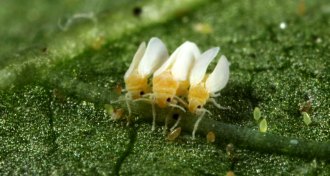 Plants
PlantsA major crop pest can make tomato plants lie to their neighbors
Insects called silverleaf whiteflies exploit tomatoes’ ability to detect damage caused to nearby plants.
By Susan Milius -
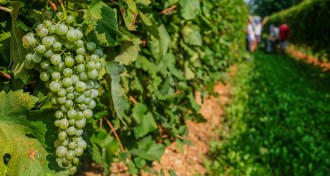 Agriculture
AgricultureProsecco production takes a toll on northeast Italy’s environment
The soil in Northern Italy’s prosecco vineyards is washing away.
-
 Animals
AnimalsThis honeybee parasite may be more of a fat stealer than a bloodsucker
Inventing decoy bee larvae prompts a back-to-basics rethink of a mite ominously named Varroa destructor.
By Susan Milius -
 Agriculture
AgricultureA new way to genetically tweak photosynthesis boosts plant growth
A new chemical road map for a process called photorespiration in plant cells could reduce energy waste to increase plant productivity.
-
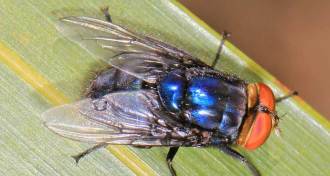 Agriculture
Agriculture50 years ago, screwworm flies inspired a new approach to insect control
The United States has wiped out screwworm flies repeatedly since 1966 using the sterile male eradication technique.
By Kyle Plantz -
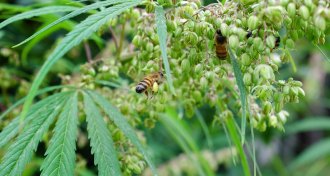 Animals
AnimalsHemp fields offer a late-season pollen source for stressed bees
Colorado’s legal fields of low-THC cannabis can attract a lot of bees.
By Susan Milius -
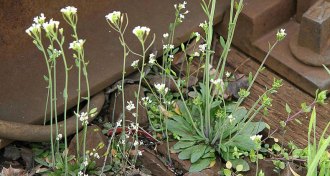 Agriculture
AgriculturePlants engineered to always be on alert don’t grow well
Scientists bred a type of weed to lack proteins that help stem the production of bitter chemicals used to ward off insect attacks.
-
 Agriculture
AgricultureAdd beer to the list of foods threatened by climate change
Barley crops around the world will be threatened by drought and heat.
-
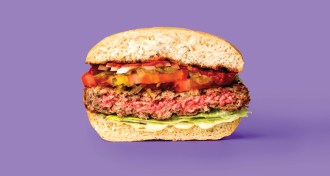 Agriculture
AgricultureCan science build a better burger?
Researchers hope to replace whole animal agriculture and feed the world with lab-made meats or plants.
By Susan Milius -
 Earth
EarthA new map reveals the causes of forest loss worldwide
A new study shows where global forest loss is due to permanent deforestation versus short-term shifts in land use.
-
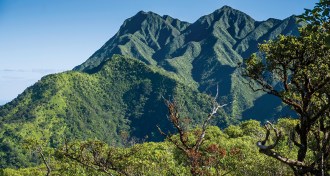 Agriculture
AgricultureHow plant microbes could feed the world and save endangered species
Scientists have only scratched the surface of the plant microbiome, but they already believe it might increase crop yield and save species from extinction.
By Amber Dance